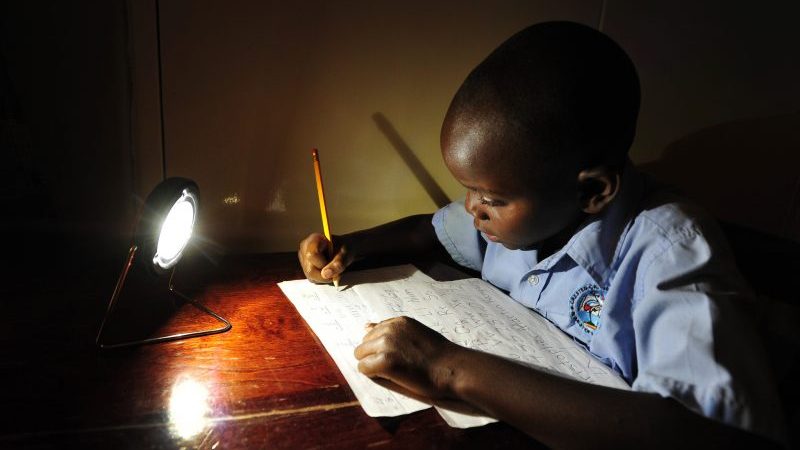More than 100 NGOs from around the world weighed into a row over Africa’s clean energy future on Thursday.
In an open letter to the European Commission and France, groups including Action Aid, Oxfam and WWF demanded that donors respect African ownership of a flagship renewables scheme.
It endorses concerns raised by African civil society groups that the EU “hijacked” the Africa Renewable Energy Initiative (AREI), pushing through 19 projects without proper scrutiny.
“Decades of experience with development and climate finance shows us that letting rich countries make decisions for people living in developing countries is a surefire path to failure,” said Brandon Wu of Action Aid USA.
“The AREI is an exciting and innovative initiative exactly because it is African-owned and African-driven. France and the EU are to be commended for contributing to the AREI, but only if their contributions are actually new and additional money and come with no strings attached.
“By trying to use their status as donors to push through pet projects and take control away from Africans, they are doing far more harm than good.”
Weekly briefing: Sign up for your essential climate news update
As Climate Home revealed last month, the initiative’s top official Youba Sokona resigned in protest at moves to sidestep the governance procedures he drew up.
Ségolène Royal, who attended AREI board meetings as France’s environment minister, denied interfering. In an interview on the sidelines of climate talks in Bonn, she admitted transparency had suffered in the urgency to get projects moving, but insisted the projects were approved by African leaders on the board.
Royal revealed that Seyni Nafo, chair of the Africa group at climate negotiations, is in line to take over from Sokona, subject to board approval in July.
In their press release, the NGOs cautiously welcomed Nafo’s appointment. Many campaigners have “worked productively” with Nafo in the past, they said, stressing that success would depend on him defending African ownership of the process.
“Donor countries need to back off,” said Mohamed Adow of Christian Aid. “Both African board members and the new head need to ensure AREI’s original vision and integrity is restored.”
Report: Ségolène Royal reveals new head for ‘Africa-led’ renewables scheme
The statement called for the 19 approved projects to be put on hold pending a review against AREI criteria, with civil society participation.
One major bone of contention is the climate finance accounting. The AREI aims to install 10GW of “new and additional” clean energy capacity across the continent by 2020. Donor countries promised to “mobilise” $10 billion towards that goal – but while they prefer to count finance flows from existing programmes, campaigners want to see new public money.
Another is a perceived bias towards big infrastructure, which attracts commercial investors, over the off-grid power systems that can reach poor rural communities. An estimated 600 million Africans lack access to electricity.
“Donor countries cannot bypass the AREI’s safeguards and screening process and simply use it to rubberstamp their pre-existing projects,” said Annaka Peterson of Oxfam International.
“Doing so invalidates a crucial goal of the initiative – to break free from old and outdated development models, and instead give African people control of their future.”
Report: Kenya clean energy revolution dogged by land disputes
Another NGO ask was for the European Commission and France, who have thus far been represented at board meetings, to give up any aspiration to board membership.
Instead they suggested a non-African board member could be chosen from emerging Asian economies. One advantage of a seat at the table is the opportunity to steer contracts towards domestic technology providers or consultants.
Sanjay Vashist of Climate Action Network – South Asia, said: “In recent years we have seen some inspiring examples of South-South cooperation on climate and energy, with both China and India emerging as key players in the renewables field. By trying to claim both non-African seats on the AREI Board, France and the European Commission are stunting the potential for further cooperation between Africa and the rest of the developing world.”
